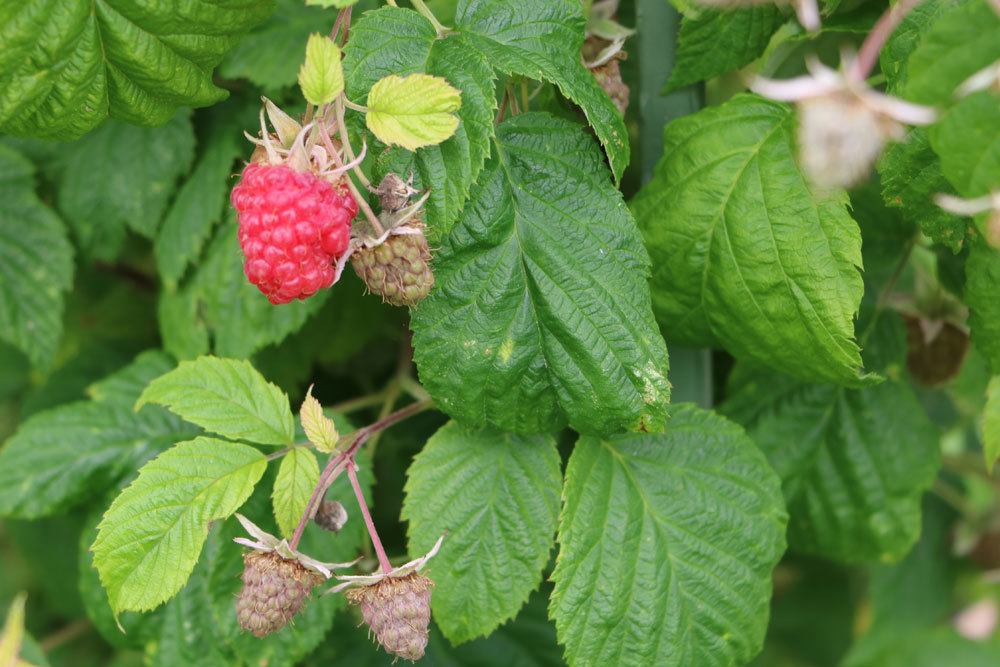Fresh berries from your own garden are one of the gifts of summer. Ripened in the sun, the colorful berries shine all around and accentuate contrast with the lush green of the leaves. For the gardener to experience this joy, adequate care is required. Fertilizing is not infrequently neglected or replaced by standard solutions. Raspberry (Rubus idaeus) has some special requirements for fertilization and the resulting soil conditions.
Contents
Fertilizing and soil
Basics for fertilization and soil condition.
Although raspberries are comparatively insensitive when it comes to nutrients, the ambitious gardener must pay attention to a few details. Mineral fertilizers are not a good choice for raspberries because they contain a lot of salt. Many soils suffer from increased salt content anyway due to too frequent watering. Raspberries are very sensitive and react to sodium chloride with sparse growth, yellow leaves and puny fruit. The situation is similar for chlorine. This is added to many chemical fertilizers and berry fertilizers.
Ideally, a berry fertilizer that is free of chlorine and salt should be combined with organic fertilizers such as compost or horse manure. The organic fertilizers loosen the soil, enrich it with microorganisms and improve the water supply.
Notice:
- Chlorine and salt limit growth!
- Combine organic fertilizers with berry fertilizers
When to fertilize?
Not only the fertilizer, but also the timing of the application of nutrients changes the result. Basically, raspberries are fertilized when planting, to stimulate root growth, and in the spring. It is important to fertilize before flowering, which should have taken place by the beginning of May at the latest, depending on the variety.
Although it is often advised to fertilize a second time before fruit ripening, this should be viewed with caution. It is true that this makes the fruit larger, but on the other hand, the taste suffers. In addition, frequent fertilizing can have the opposite effect, especially on already nutrient-rich soils.
Because too much is just as bad as too little nutrients!
On lean and medium soils, on the other hand, a second fertilization after the fruiting period is indicated. This will give the plant the strength to put on new buds and get through the winter well. But beware: fertilizing only a few weeks before the first frost is harmful. The raspberries react by forming new shoots, which then freeze. Therefore, late-bearing varieties in particular should not be fertilized in the fall.
Remember fertilizing:
- when planting
- in spring before flowering
- in autumn after fruit ripening
- late-bearing varieties only in spring
- Sun, rain and fertilizing are not compatible.
Just as important as the timing is the weather when fertilizing. Light cloud cover and moderate temperatures without rain or direct sunlight are ideal.
The reason:
Rain would directly wash away the nutrients freshly introduced into the soil, rendering them useless.
Sun, on the other hand, can literally burn the trunk, root and leaves due to the escaping gases of organic fertilizers. Special caution is advised with liquid fertilizers. Never pour these over the foliage, but always directly to the trunk.
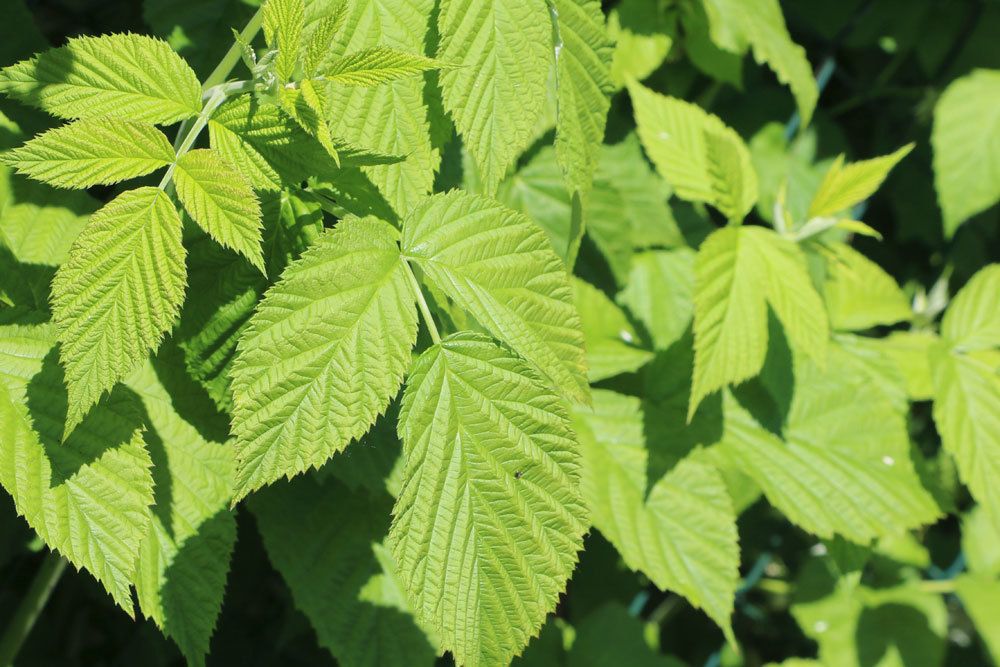
Note:
- never fertilize in sun and rain
- Do not wet leaves and flowers
Horse manure – a rich, organic fertilizer
A rich direct and slow-release fertilizer with many benefits is horse manure. It can be used fresh, dried and composted for raspberries. However, it is not indifferent in what form it is provided to the plants.
Fresh horse manure is rich in readily available ammonia and acts as a direct fertilizer. At the same time, fresh horse manure is a slow-release fertilizer, because the decomposition process releases all the nutrients only after about a year.
Dried manure, on the other hand, is lower in nitrogen because the ammonia has evaporated. This also makes it odorless. Composted horse apples form a rich humus that loosens the soil and can store water at the same time.
Fresh horse apples – ideal when planting
Fresh horse apples can be described as a nutrient booster, which furthermore produce heat during the decomposition process. The gardener can take advantage of both.
When transplanting raspberries, horse manure is added to the planting hole. This trick is borrowed from the cultivation of roses and also works for raspberries, because, after all, both belong to the same family: the rose family (Rosaceae).
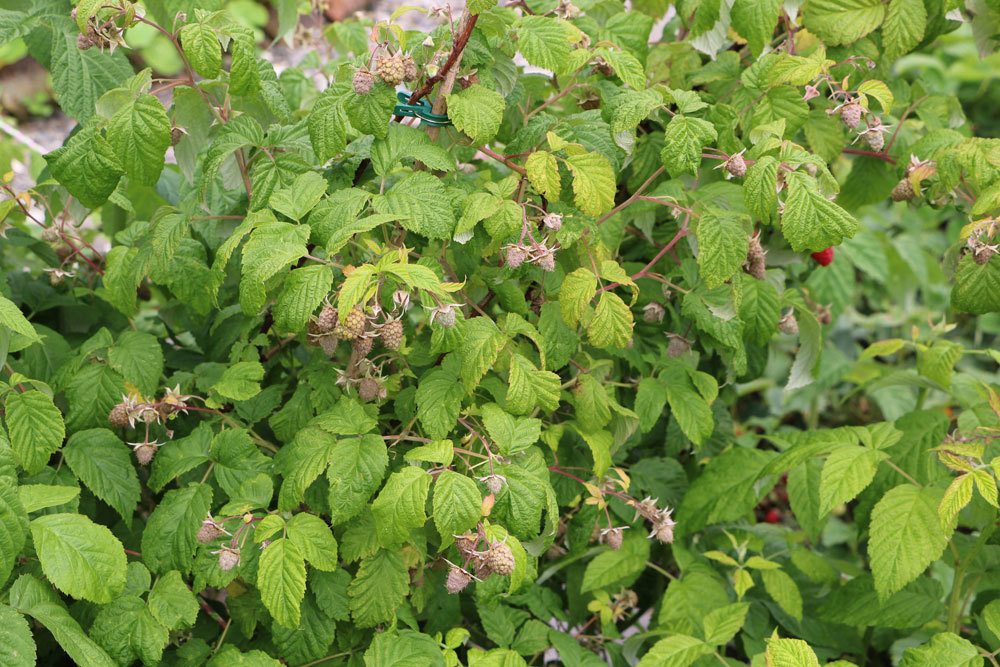
It is important not to sink the horse apples too deep into the planting hole, because unlike roses, raspberries are shallow rooted. The rotting horse apples warm the plant from below. The roots are stimulated to grow by the readily available nitrogen and the plant quickly acclimates to its new location.
Notice:
- Horse droppings into the planting hole
- Raspberries are flat rooted
- dried and composted horse manure for the spring
Dried and composted horse manure is suitable as a long-term fertilizer. The compost has the advantage that the nutrients are available even faster than with the dried manure. In addition, it is able to bind water to the root ball. To do this, do not work the compost into the soil, or only a little. Thus, with each watering or rain, the nutrients gradually seep to the roots.
In already wet soils, however, compost can be counterproductive and promote rotting processes. In this case, dried manure is more suitable, which is lightly worked into the soil with a hoe. Here it binds little water and slowly releases its nutrients.
Notice:
- composted horse manure for dry soils
- dried manure for moist soils
Nettle liquid manure – the natural nitrogen supplier
Stinging nettles need a particularly large amount of nitrogen to grow and serve as a nitrogen indicator in the garden. Accordingly, it is only logical that the rotting plant material can serve as a natural nitrogen supplier for raspberries.
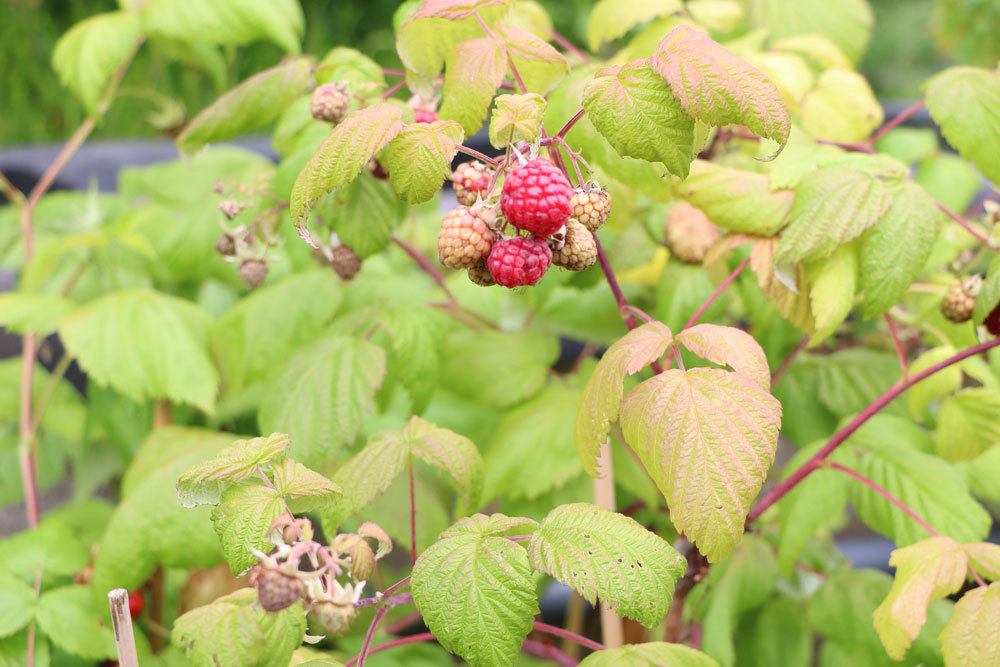
To prepare a nettle liquid manure, the coarsely cut plant material is covered with water. Depending on the outside temperature, the mixture ferments for about one to two weeks. Make sure that foam forms during daily stirring. If this does not continue to rise, the nettle liquid manure is ready for use. It is diluted with water in a ratio of 1 :10 and added to the roots of the raspberries.
Notice:
- Dilute stinging nettle liquid manure 1:10 with water.
- do not pour over leaves
- nitrogenous
- Berry fertilizer with mycorrhiza
Berry fertilizer – quick help with mycorrhiza
The trade offers specialized fertilizers for berries. These are usually low in nitrogen, but rich in potassium and phosphorus, which are essential for healthy flowering. The low nitrogen content is geared toward good soils: In depleted soils, berry fertilizers alone are often insufficient and should be supplemented with organic fertilizers such as horse manure and nettle slurry. A combination of both elements provides direct and long-term supply.
In addition, selected berry fertilizers contain mycorrhiza. This is a soil fungus that forms a symbiotic relationship with raspberry roots. It increases the surface area of the roots, thereby improving their ability to absorb water and nutrients.
Notice:
- Berry fertilizers are low in nitrogen
- they are designed as direct fertilizers
- pay attention to mycorrhiza
Lime – no thanks
Experienced hobby gardeners know about the yield-enhancing effect of lime. Flowers, fruit and vegetables as well as the beloved lawn sprout a lush green thanks to annual liming. In contrast, raspberries, like many other berries, belong to the lime despisers. The reason: lime neutralizes acidic soil.
Raspberries thrive particularly well at a pH value of 5.5 to 6.5, i.e. acidic soil. This characteristic calls for increased attention when watering, because tap water has a high lime content in many places. Therefore, use rainwater. In naturally calcareous soils, regular fertilizing with coffee grounds not only provides nutrients, but also reduces the pH value of the soil.
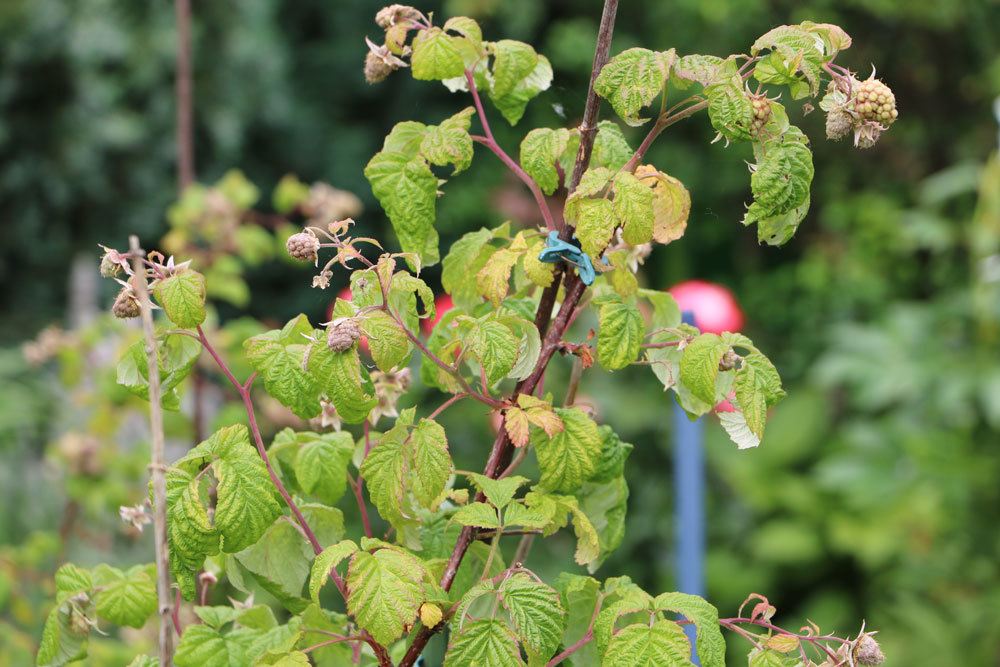
Note:
- do not lime
- Use rainwater. Tap water contains lime!
- pH value of 5.5 to 6.5 is ideal
- Coffee grounds neutralize lime
- Coffee grounds as fertilizer
Coffee grounds – the cheap fertilizer for raspberries
A cheap alternative to purchased berry fertilizer is coffee grounds. Simply work the cold and dried powder lightly into the soil in spring and benefit from the nutrients and special properties of coffee. This is because coffee grounds not only reduce the pH of the soil, but their odor also deters pests.
Notice:
- Coffee grounds are a complete fertilizer
- Pests are deterred

